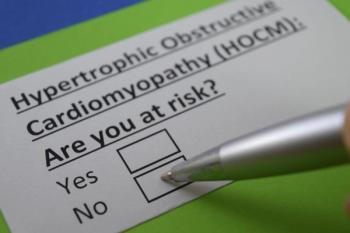
Anticoagulants Improve Survival Rates in Patients With COVID-19
Researchers from the Mount Sinai COVID Informatics Center report improved survival rates in COVID patients treated with anticoagulants.
An article published on our sister website
According to the study, which was led by researchers from the Mount Sinai COVID Informatics Center, hospitalized patients with COVID-19 had improved outcomes both in and out of the intensive care unit setting, without a significant difference in bleeding.
The
"This research demonstrates anticoagulants taken orally, subcutaneously, or intravenously may play a major role in caring for COVID-19 patients, and these may prevent possible deadly events associated with coronavirus, including heart attack, stroke, and pulmonary embolism," said senior corresponding author Valentin Fuster, MD, PhD, Director of Mount Sinai Heart and Physician-in-Chief of The Mount Sinai Hospital in a statement. "Using anticoagulants should be considered when patients get admitted to the ER and have tested positive for COVID-19 to possibly improve outcomes.”
Read the full article on
Newsletter
Pharmacy practice is always changing. Stay ahead of the curve with the Drug Topics newsletter and get the latest drug information, industry trends, and patient care tips.























